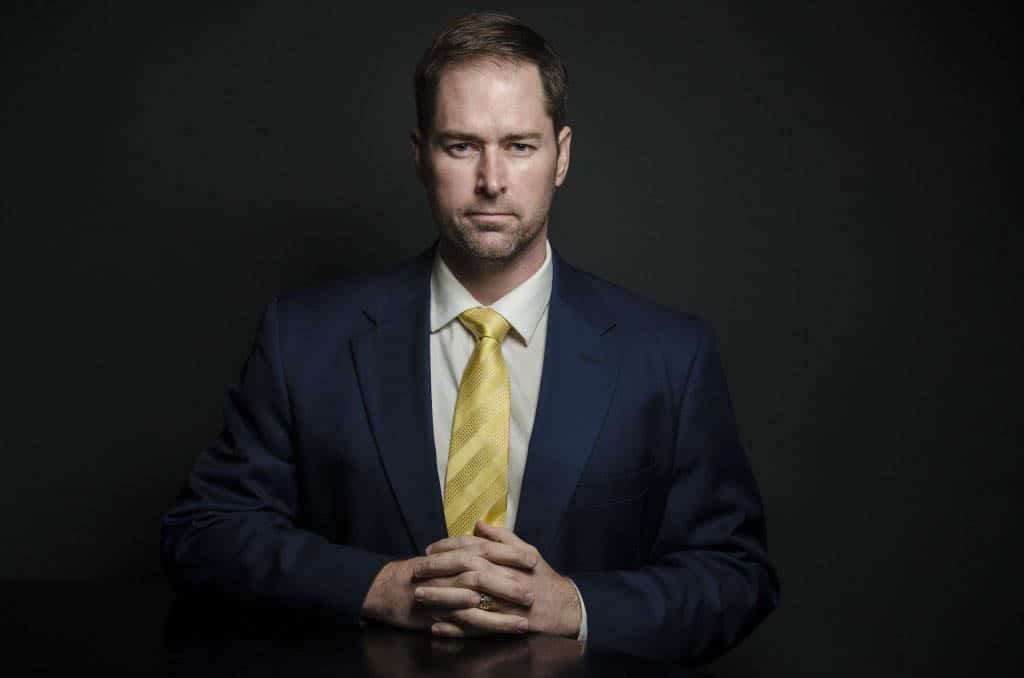Chapter 11 Bankruptcy Lawyers - Nick Davis Law
Additional Bankruptcy-Related Practice AreasFrom litigation to emergency filings, Nick Davis Law provides a full range of services, ensuring you have trusted legal support at every stage of your bankruptcy journey.
Serving Montgomery, Harris, Fort Bend, Brazos, Grimes, Waller, Walker & Surrounding Counties
Comprehensive Bankruptcy Solutions Beyond Filing: Protect Your Financial Future with Nick Davis Law in The Woodlands, Katy, Houston, College Station, Texas

When it comes to bankruptcy, the complexities extend far beyond the initial filing. At Nick Davis Law, we understand that every financial situation is unique, which is why we offer a wide range of additional bankruptcy-related services to ensure you’re fully protected. Whether you need legal representation in bankruptcy litigation, emergency filings to stop foreclosure, or guidance on alternatives to bankruptcy, our trusted and determined legal team is here to help. Let us guide you through these challenges with professionalism and precision, so you can regain control of your financial future.
Need immediate legal assistance with a bankruptcy-related issue? Contact Nick Davis Law at (936) 262-7474 today for a free consultation. Serving The Woodlands, Katy, and surrounding Texas counties.
Bankruptcy Litigation: Safeguarding Your Rights in Bankruptcy Court
Whether you’re a debtor or creditor, our trusted attorneys provide determined representation in bankruptcy litigation.
Content:
Bankruptcy-related lawsuits can arise at any stage of the process, from creditor objections to dischargeability disputes. At Nick Davis Law, we are well-versed in defending clients against creditor challenges in Chapter 7 and Chapter 11 cases. We also handle complex issues like fraudulent transfer and preference actions, ensuring that our clients are fully protected in court.
- Defending Creditor Objections: We stand up for your rights when creditors challenge your bankruptcy filing, making sure that your debts are properly discharged.
- Dischargeability Disputes: We handle litigation over debts that creditors claim should not be discharged, such as tax debts or fraud-related claims.
- Fraudulent Transfer and Preference Actions: Our team defends you from allegations of fraudulent transfers and preference payments, or assists creditors in recovering assets.
Facing bankruptcy litigation? Contact Nick Davis Law at (936) 262-7474 for trusted representation.
Alternatives to Bankruptcy: Personalized Debt Solutions Without Filing
Explore debt negotiation, settlement, and consolidation as alternatives to bankruptcy with Nick Davis Law.
Bankruptcy is not always the best option for every individual or business. At Nick Davis Law, we offer alternatives such as debt negotiation and settlement, helping you reduce your financial burden without the long-term impact of bankruptcy. Our team carefully evaluates your financial situation and works directly with creditors to secure better terms, potentially avoiding the need for a bankruptcy filing.
- Debt Negotiation and Settlement: We negotiate with creditors on your behalf to settle debts for less than what’s owed, avoiding bankruptcy entirely.
- Debt Consolidation vs. Bankruptcy: We compare the pros and cons of debt consolidation with bankruptcy, ensuring you make the most informed decision.
- When to Consider a Debt Workout: In cases where bankruptcy may not be the best solution, a debt workout plan can be negotiated to restructure your payments.
Don’t wait until it’s too late to act. Contact Nick Davis Law Bankruptcy Relief Lawyers today for a free consultation at (936) 262-7474 and assistance in filing for Bankruptcy in The Woodlands, Houston, Katy, and College Station.
OVERVIEW OF CHAPTER 7
COMMON QUESTIONS
CREDIT COUNSELING
341 MEETING
BENEFITS OF CHAPTER 7 BANKRUPTCY
CHAPTER 7 VS. CHAPTER 13
MEANS TEST & ELIGIBILITY FOR CHAPTER 7
FILING FOR CHAPTER 7 IN TEXAS
DEBTS DISCHARGED IN CHAPTER 7
PROTECTING ASSETS
TEXAS EXEMPTIONS
TEXAS SPECIFIC BANKRUPTCY
ROLE OF TRUSTEE
EMERGENCY BANKRUPTCY
IMPACT OF CHAPTER 7
LIFE AFTER CHAPTER 7
BANKRUPTCY LITIGATION
ADDITIONAL BANKRUPTCY AREAS
ALTERNATIVES TO BANKRUPTCY
CHAPTER 11 BANKRUPTCY
OVERVIEW OF CHAPTER 11
FILING FOR CHAPTER 11 BANKRUPTCY
CHAPTER 11 FOR BUSINESSES
CHAPTER 11 FOR INDIVIDUALS
DEVELOPING A CHAPTER 11 REORGANIZATION PLAN
DEALING WITH CREDITORS IN CHAPTER 11
MANAGING ASSETS AND OPERATIONS DURING CHAPTER 11
BANKRUPTCY LITIGATION
ADDITIONAL BANKRUPTCY PRACTICE AREAS
EXITING CHAPTER 11 BANKRUPTCY
ALTERNATIVES TO BANKRUPTCY
SPECIAL CHAPTER 11 TOPICS
Emergency Bankruptcy Filings
Emergency Bankruptcy Filings: Immediate Action to Protect Your Assets
In urgent financial situations, we can file an emergency petition to stop foreclosure, repossession, or wage garnishment.
When time is of the essence, filing an emergency bankruptcy petition can stop foreclosure, repossession, or garnishment through the automatic stay. At Nick Davis Law, we handle emergency filings under both Chapter 7 and Chapter 11, ensuring that your home and assets are protected while we develop a long-term solution.
- Stop Foreclosure Immediately: Emergency filings trigger an automatic stay, immediately stopping foreclosure and giving you time to restructure your debts.
- How to File an Emergency Petition: We walk you through the process, from gathering necessary documentation to filing the petition swiftly to prevent asset loss.
Facing foreclosure or aggressive creditors? Contact Nick Davis Law at (936) 262-7474 for immediate assistance.
Credit Counseling and Bankruptcy Preparation
Credit Counseling and Bankruptcy Preparation: Setting the Stage for Success
Ensure a smooth bankruptcy process with thorough preparation and required credit counseling.
Before you can file for Chapter 7 or Chapter 11, credit counseling is required. Nick Davis Law helps you navigate this step, connecting you with approved counseling services and ensuring you complete the process efficiently. We also guide you through pre-filing preparation, setting you up for a successful bankruptcy outcome.
- Pre-Bankruptcy Credit Counseling: A mandatory step before filing, we help you complete this process quickly.
- Financial Management Post-Bankruptcy: After your debts are discharged, post-debtor education ensures you have the tools to manage your finances moving forward.
- Pre-Filing Planning: By organizing your financial records and assessing which debts can be discharged, we help maximize the benefits of your bankruptcy filing.
Ready to start planning for your bankruptcy? Contact Nick Davis Law at (936) 262-7474 to begin the process today.
Chapter 11 for Franchises and Franchisees
Chapter 11 for Franchises: Keeping Your Business Open While Restructuring Debt
Franchise owners can use Chapter 11 to renegotiate leases and franchise agreements, restructure debt, and stay in business.
Running a franchise comes with unique financial challenges—particularly when facing bankruptcy. Chapter 11 provides franchisees the opportunity to restructure debt, renegotiate franchise agreements, and keep their doors open. This is especially important in preserving franchise agreements, which often have strict rules around ownership and management. Chapter 11 allows you to renegotiate leases, manage creditor claims, and restructure debt without disrupting the franchise. Nick Davis Law specializes in helping franchisees navigate this delicate process while ensuring long-term stability for the business.
Discover how Chapter 11 can save your franchise from financial distress. Is your franchise struggling with debt? Contact Nick Davis Law at (936) 262-7474 for legal assistance.
How Chapter 11 Affects Lawsuits and Legal Claims
How Chapter 11 Affects Lawsuits and Legal Claims: Immediate Legal Protection for Your Business
Chapter 11 can stop lawsuits in their tracks, giving your business the breathing room it needs to resolve legal claims while restructuring.
One of the most powerful benefits of filing for Chapter 11 is the automatic stay—a provision that immediately halts all lawsuits, collection efforts, and legal claims against your business. Whether you’re facing a breach of contract suit, personal injury claims, or employment disputes, Chapter 11 gives you the time to address these issues as part of your reorganization. Additionally, legal claims can be resolved as part of your Chapter 11 plan, often resulting in negotiated settlements or restructured payments. Nick Davis Law ensures that your business is protected from aggressive legal actions while you focus on rebuilding your financial foundation.
Learn how Chapter 11 can protect your business from lawsuits and legal claims. Need protection from lawsuits during Chapter 11? Contact Nick Davis Law at (936) 262-7474 for immediate legal assistance.
FAQ
Frequently Asked Questions
What is the role of a bankruptcy trustee in Chapter 7 and Chapter 11 cases?
The bankruptcy trustee plays a crucial role in both Chapter 7 and Chapter 11 cases. In Chapter 7, the trustee oversees the liquidation of non-exempt assets and distributes proceeds to creditors. The trustee will also review your financial documents to ensure accuracy and may challenge any fraudulent transfers or misrepresentations. In Chapter 11, the trustee monitors the reorganization process but is less hands-on, allowing the debtor-in-possession to continue running the business. Trustees can also initiate litigation if there are disputes over asset values or creditor claims, making them a key figure in ensuring the fairness of the bankruptcy process.
How does bankruptcy affect my business partnerships or joint ventures?
Filing for bankruptcy can significantly impact partnerships or joint ventures, especially if the financial stability of one partner is in question. In Chapter 11, you may be able to restructure business debts without dissolving the partnership, but you will need to work closely with your partners to ensure that the reorganization plan is mutually beneficial. In Chapter 7, if the business is liquidated, the partnership could be dissolved, or the remaining partner(s) may have to assume full responsibility for outstanding debts. Transparent communication with partners is essential during bankruptcy to avoid disputes and clarify future responsibilities.
Can bankruptcy stop wage garnishment and how long does it take?
Yes, filing for bankruptcy triggers an automatic stay, which immediately halts wage garnishment. Once the bankruptcy petition is filed, the court notifies your creditors, and they must cease all garnishment actions. The timeline for stopping garnishment depends on how quickly the court processes your filing and notifies your employer, but it generally takes effect within a few days. If the garnishment continues, your attorney can take legal action to enforce the stay and recover any improperly garnished wages.
What happens to my cosigner if I file for bankruptcy?
If you file for bankruptcy and a cosigner is involved, their financial liability may remain intact. In Chapter 7, your personal liability for the debt is discharged, but the creditor can still pursue the cosigner for the remaining balance. In Chapter 11, depending on the reorganization plan, the cosigner may still be responsible for any portion of the debt that is not fully repaid. It’s important to communicate with your cosigner before filing and explore options such as reaffirming the debt or negotiating with creditors to protect the cosigner’s interests.
Can I file for bankruptcy and still retain my professional license?
Yes, filing for bankruptcy typically does not affect your ability to retain a professional license. Professions such as law, medicine, real estate, and finance generally do not have restrictions related to bankruptcy. However, if your profession involves fiduciary responsibility, such as financial advising or accounting, your bankruptcy may require additional disclosure to licensing boards or clients. Consulting with your attorney to understand the potential impact on your specific profession is essential for maintaining compliance and safeguarding your career.
What is the difference between voluntary and involuntary bankruptcy?
A voluntary bankruptcy occurs when an individual or business chooses to file for bankruptcy to manage overwhelming debt. In contrast, involuntary bankruptcy is initiated by creditors who file a petition to force a debtor into bankruptcy, usually because they believe the debtor is not paying debts in a timely manner. Involuntary bankruptcies are more common in business settings, but they can also affect individuals. If you face the possibility of involuntary bankruptcy, you have the right to challenge the petition in court, and consulting an attorney is crucial to protecting your rights.
How do fraudulent transfers impact a bankruptcy case?
Fraudulent transfers occur when a debtor transfers property or assets to another person or entity with the intent to hide them from creditors before filing for bankruptcy. If the bankruptcy trustee discovers these transfers, they can reverse them, reclaim the assets, and potentially deny a discharge of debts. Fraudulent transfers can have serious legal consequences, including fines and penalties, so it’s essential to be transparent about your financial history during the bankruptcy process. Proper pre-filing planning with your attorney can help you avoid any actions that might be perceived as fraudulent.
How does bankruptcy affect my ability to rent an apartment or commercial space?
Bankruptcy may affect your ability to rent an apartment or commercial space, as landlords typically run credit checks during the application process. A bankruptcy filing will appear on your credit report, and some landlords may see this as a risk. However, many landlords are willing to rent to individuals or businesses post-bankruptcy if they can demonstrate financial recovery and provide a larger security deposit or a reliable co-signer. Being upfront about your bankruptcy and showing a stable income can help improve your chances of securing a rental agreement.
Can I still keep my business open during Chapter 7 bankruptcy?
In most cases, Chapter 7 bankruptcy involves liquidating a business to pay off debts, meaning the business will likely close. However, if you operate a sole proprietorship, you may be able to exempt some tools of the trade or personal assets necessary to keep the business running on a smaller scale. Any business entity, such as a corporation or LLC, will likely be liquidated, but consulting with an attorney can help you explore alternatives like Chapter 11 reorganization if you want to continue operating your business.
How does bankruptcy affect my taxes and tax refunds?
Certain tax debts may be dischargeable in bankruptcy, but not all taxes qualify. For example, income taxes that are over three years old, have been properly filed, and have no recent tax liens may be discharged in Chapter 7 or Chapter 11. However, newer tax debts, payroll taxes, and fraudulent tax filings are generally non-dischargeable. Tax refunds may also be considered part of your bankruptcy estate, depending on when they are received. If you receive a tax refund during the bankruptcy process, it may need to be disclosed and used to repay creditors, so working with your attorney to plan for tax obligations is critical.
Can bankruptcy discharge student loans, and if not, what are my options?
Student loans are notoriously difficult to discharge in bankruptcy, but it is not impossible. To discharge student loans, you must prove “undue hardship,” which typically requires demonstrating that repaying the loan would prevent you from maintaining a minimal standard of living, that the hardship will continue for a significant portion of the repayment period, and that you have made a good faith effort to repay the loans. If discharge isn’t possible, Chapter 11 or Chapter 13 can help restructure your student loan payments to make them more manageable. Consult with your attorney to explore whether you meet the criteria for undue hardship.
How does Chapter 11 bankruptcy affect small business owners personally?
For small business owners, Chapter 11 bankruptcy can impact personal assets if business debts are personally guaranteed. While the business remains the primary entity undergoing reorganization, personal liability may arise from loans or credit lines tied to the business owner. Chapter 11 allows the business to continue operating while restructuring debts, but it’s important for small business owners to separate personal and business finances wherever possible to protect personal assets. Consulting with an attorney can help minimize personal exposure during the bankruptcy process.
Can I discharge medical debt through bankruptcy?
Yes, medical debt is generally considered unsecured debt, and it can be discharged through Chapter 7 or restructured in Chapter 11 bankruptcy. Medical bills often accumulate quickly, especially after unexpected illnesses or injuries, and bankruptcy offers relief for individuals facing overwhelming healthcare costs. However, before filing, you may want to explore whether your healthcare provider is open to negotiating a payment plan or settlement. If bankruptcy is the best option, your attorney can guide you through the process of including medical debt in your filing.
How can I rebuild my business’s reputation after Chapter 11 bankruptcy?
Rebuilding your business’s reputation after Chapter 11 bankruptcy requires transparency, consistent communication, and a focus on financial stability. Many vendors, clients, and investors understand that bankruptcy is a legal tool for restructuring, not necessarily a sign of failure. Post-bankruptcy, you can rebuild trust by demonstrating strong financial practices, honoring new agreements, and maintaining high-quality products or services. Publicly communicating your business’s recovery efforts through marketing or public relations campaigns can also help reshape your brand’s image in the marketplace.
From the Blog
Recent Articles
Take Control of Your Financial Future Today
FLEXIBLE APPOINTMENTS | PAYMENT PLANS
Have more questions about Chapter 11? Contact Nick Davis Law at (936) 262-7474 for trusted answers and personalized legal advice.
At Nick Davis Law, we understand that bankruptcy is a complex and emotional process. Whether you’re an individual facing overwhelming personal debt or a business looking to restructure, we’re determined to guide you through every step. Bankruptcy is not the end—it’s the beginning of a new, more secure financial future.
Get a Free Consultation Now
Contact Nick Davis Law, serving The Woodlands, Katy, Houston, College Station and surrounding cities and counties. Take control of your financial future today—call us at (936) 262-7474. Our Montgomery, Harris, Fort Bend, Walker, Brazos, Grimes, Waller County Bankruptcy Lawyers regularly offer After-Hour & Weekend Phone and Virtual Consults and Payment Plans.
Contact us
Nick Davis Law
26418 Oak Ridge Dr.
The Woodlands, TX 77380
(936) 262-7474
The Woodlands, Texas
26418 Oak Ridge Dr.
The Woodlands, TX 77380
(936) 262-7474
Appointments Only
Bryan | College Station, Texas
750 William D. Fitch Pkwy, Ste 210
College Station, TX 778455
(979) 417-2220
Business Hours
Mon - Fri 8:00 am to 6:00 pm
Our Mission
The Trusted Family, Divorce, Bankruptcy, CPS, and Small Business Lawyers at Nick Davis Law are dedicated to providing the best and most efficient representation possible to our clients to achieve their goals quickly and cost effectively. Nick Davis Law maintain offices in The Woodlands, Katy, Texas and Bryan | College Station and serve all of Montgomery County, Brazos County, Walker County, Waller County, Grimes County, Washington County, Burleson County, San Jacinto County, Liberty County, Harris County, and surrounding counties.




